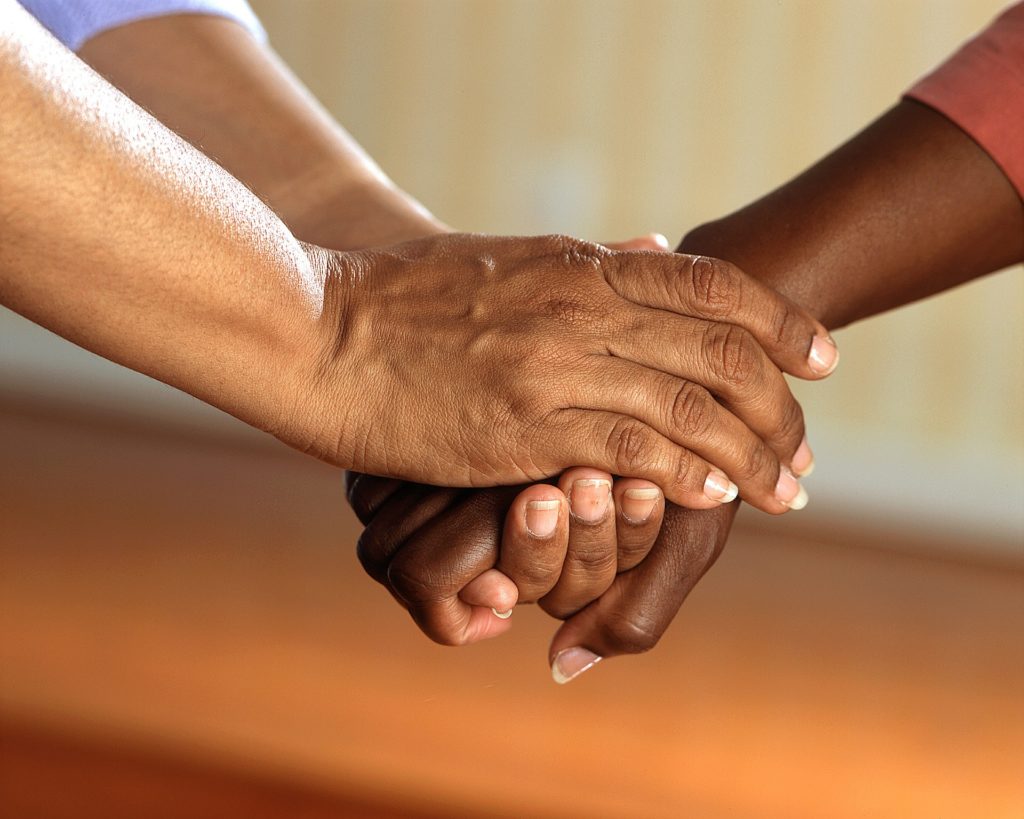- Calls to this hotline are currently being directed to Within Health, Fay or Eating Disorder Solutions
- Representatives are standing by 24/7 to help answer your questions
- All calls are confidential and HIPAA compliant
- There is no obligation or cost to call
- Eating Disorder Hope does not receive any commissions or fees dependent upon which provider you select
- Additional treatment providers are located on our directory or samhsa.gov
What to Tell Your Friend Who Wants to Lose Weight

Weight loss is a topic that has become highly normalized.
Those of us in the body image and eating disorder recovery sphere cringe at casual diet and weight loss remarks, as we know the harm that they can cause. It can be difficult to broach the topic of why this mentality is so harmful when loved ones bring it up.
1. Open the Door
Whenever a loved one broaches a difficult subject with you, always start with listening, and doing so with the intent of understanding instead of responding. If you are only listening to respond, you are focusing more on what you should say, and less on truly being present with your friend.
Sit in the mud with them, openly and without judgment empathize with their thoughts and feelings, and then carefully consider your response.
2. Find the “Why”
An important question to ask a friend who wants to lose weight is one word that has a lengthy answer: Why?
Your friend may be striving for the socially accepted “ideal” body, attempting to fit into some clothing style, or may be concerned about their health. The “why” is very important, as it opens up the door for a discussion of the deeper issues behind their desire to lose weight.
3. Reframe Body Image
Our society perpetuates the belief that we are merely decorative and our appearance is all that matters.
This results in a fear of weight gain in both men and women [1] and a culture wherein 31.8 percent of women, and 28.4 percent of men, report being dissatisfied with their bodies [2].
These sad realities make it necessary to question this belief and reframe our idea of what makes us valuable, thinking of our bodies as vessels as opposed to ornaments. Our bodies are incredibly complex and amazing organisms that assist us in growing, learning, living, and healing. To value such an amazing thing purely based on its appearance is sad and wrong!
A car may be pretty, but if it isn’t properly fueled and taken care of, it cannot do what it was made to do. When we focus more on the incredible things our bodies do, and the lives they allow us to lead, it changes our perspective entirely.
4. When to Encourage Professional Help
Joining a friend in processing their body image struggles and concerns can be incredibly valuable, but be aware of your limitations in the conversation.
Despite your efforts, they may decide to attempt to lose weight anyway. If that is the case, recommend they speak with a doctor, therapist, or nutritionist to further process their motivations and intentions.
 The conversation surrounding weight loss is a tricky one. Often, we want to protect our loved ones from the weight loss and diet culture by jumping on them with statistics and adamantly saying “No!”
The conversation surrounding weight loss is a tricky one. Often, we want to protect our loved ones from the weight loss and diet culture by jumping on them with statistics and adamantly saying “No!”
While this is backed with good intentions, it can do more harm than good. Talk with your friend instead of at them. Ultimately, it’s important to share with your friend the things you value about them, which have nothing to do with their appearance or body.
 About the Author: Margot Rittenhouse is a therapist who is passionate about providing mental health support to all in need and has worked with clients with substance abuse issues, eating disorders, domestic violence victims and offenders, and severely mentally ill youth. As a freelance writer for Eating Disorder and Addiction Hope and a mentor with MentorConnect, Margot is a passionate eating disorder advocate, committed to de-stigmatizing these illnesses while showing support for those struggling through mentoring, writing, and volunteering. Margot has a Master’s of Science in Clinical Mental Health Counseling from Johns Hopkins University.
About the Author: Margot Rittenhouse is a therapist who is passionate about providing mental health support to all in need and has worked with clients with substance abuse issues, eating disorders, domestic violence victims and offenders, and severely mentally ill youth. As a freelance writer for Eating Disorder and Addiction Hope and a mentor with MentorConnect, Margot is a passionate eating disorder advocate, committed to de-stigmatizing these illnesses while showing support for those struggling through mentoring, writing, and volunteering. Margot has a Master’s of Science in Clinical Mental Health Counseling from Johns Hopkins University.
References:
[1] Margarita, C. T., et al. (2017). Prevalence of dieting and fear of weight gain across ages: a community sample for adolescents to the elderly. International Journal of Public Health.[2] Fallon, E. A., Harris, B. S., Johnson, P. (2014). Prevalence of body dissatisfaction among a United States adult sample. Eating Behaviors, 15:1, 151-158.
The opinions and views of our guest contributors are shared to provide a broad perspective of eating disorders. These are not necessarily the views of Eating Disorder Hope, but an effort to offer discussion of various issues by different concerned individuals.
We at Eating Disorder Hope understand that eating disorders result from a combination of environmental and genetic factors. If you or a loved one are suffering from an eating disorder, please know that there is hope for you, and seek immediate professional help.
Last Updated & Reviewed By: Jacquelyn Ekern, MS, LPC on April 13, 2017.
Published on EatingDisorderHope.com

The EatingDisorderHope.com editorial team comprises experienced writers, editors, and medical reviewers specializing in eating disorders, treatment, and mental and behavioral health.

